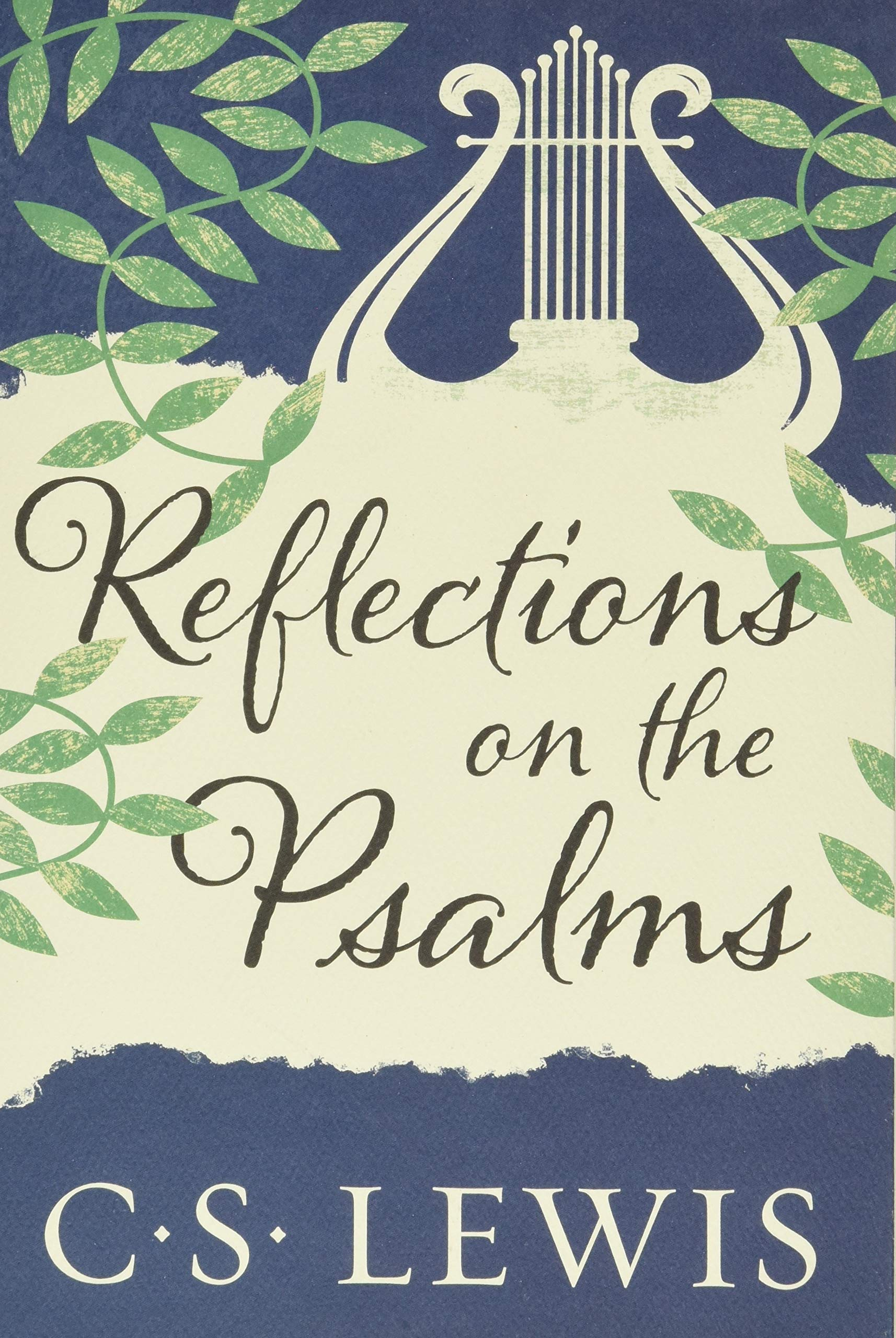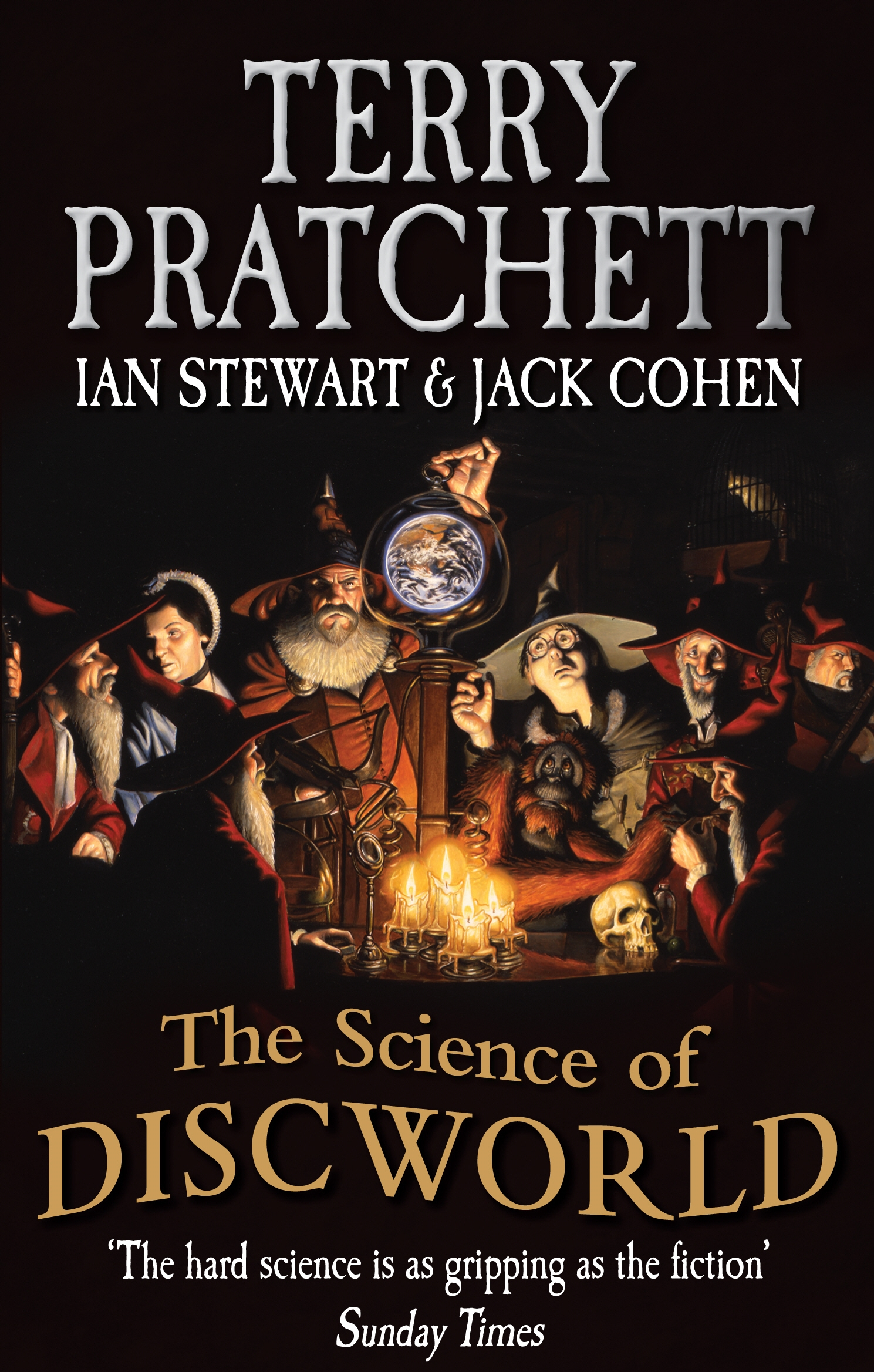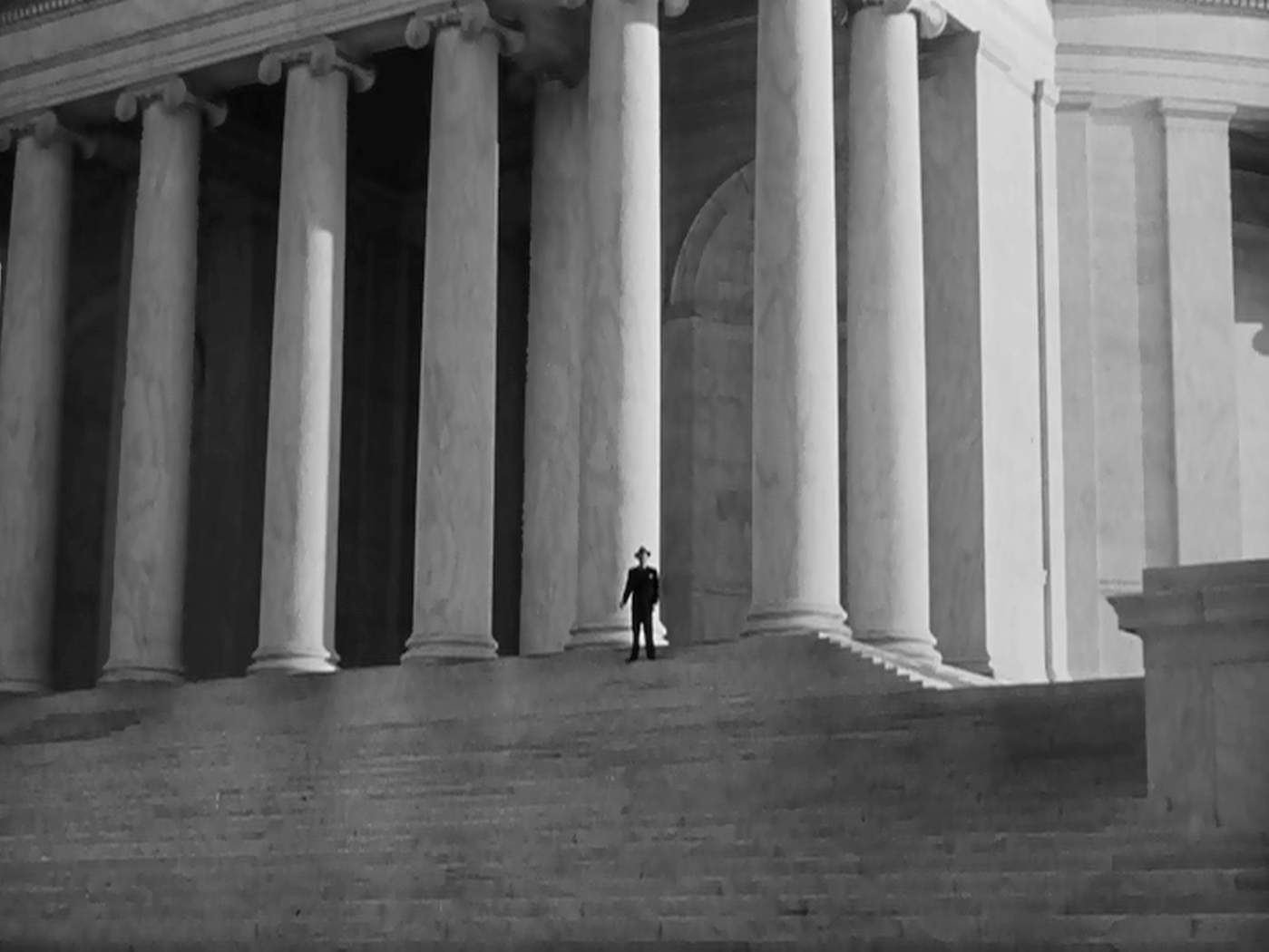- Reflections on the Psalms

Very short book, can be read in a matter of two to three hours. One probably gets more out of it if one is very familiar with the Psalms or reads it alongside them (though he mostly repeats the psalm he is currently talking about). I liked, for the most part, his interpretation. Here’s a summary of what I found interesting:
- Some Psalms go all the way back to David, but most are believed to have been created after the Babylonian captivity.
- The most common pattern/technique in the Psalms is parallelism — the practice of saying things twice in different words.
- One of the few poetic techniques that can survive translation (meter and rhyme usually don’t).
- Many Christians tremble when they hear of Judgment Day, meanwhile the Psalms talk very positively about it. Lewis compares this to how the Jews viewed judgment as a civil case with themselves as the plaintiff, while Christians think of it as a criminal case where they are the accused.
- Behind this is the historical fact that it was often very hard for a regular person to get justice without the resources to bribe judges and officials, so they looked forward to divine justice.
- In that sense, the Jewish picture enhances the Christian one: Christians fear Judgment Day because they know they could never adhere to the divine and infinite standard of purity, while the Jewish perspective helps us realize we don’t even adhere to the human standard. Who among us has never wronged another human?
- Many times in the Psalms there is a lot of hatred against the writer’s enemies.
- How should Christians deal with this hatred? Ignore it? Accept it? One approach is to recognize that we modern people also have plenty of hatred — we simply disguise it — whereas they were more honest about their feelings.
I am exceptionally blessed in having been allowed a way of life in which, having little power, I have little opportunity of oppressing and embittering others. Let all of us who have never been school prefect, NCO, schoolmaster, matron of a hospital, prison warden, or magistrate give hearty thanks for it.
- Still, their reaction to injustice with hatred is wrong, and as Christians we should not hate but forgive.
- There is often the impression that the Jews are more vindictive than pagans, but the reason is that the Jews took justice — i.e., right and wrong — more seriously than pagans did.
- In the Psalms, when they speak of death, it is always in shadowy terms. They had little belief in a future life. What modern Bibles translate as “souls” means “life” in Hebrew, and “hell” means simply the land of the dead (Sheol).
- The most valuable part of the Psalms is that they can express the same delight in God that made David dance.
- The poets do not differentiate between love of God in a spiritual sense and love found in participating in church, sermons, or festivals — for them that was one and the same.
- It wasn’t possible for them to disentangle the spiritual from the social practices — the two were intertwined.
- Thus when the Psalms talk about “seeing the Lord,” they mean something like seeing the festival. A modern Christian at such a festival might hear music, see instruments and celebration, and in addition feel the presence of God — for the poets there was no distinction, no dualism.
- The Psalms talk about how following God’s laws is delightful and beautiful — but how can following laws and commandments be delightful?
- How can a hungry, poor man in a shop full of food who refrains from stealing find this delightful?
- One answer is the satisfaction the poets feel in obeying a law — the pleasure of a good conscience.
- The theologian’s Euthyphro dilemma: some thought God could have commanded us to hate, since all goodness comes from Him. Lewis disagrees — good is independent of God, and God delights in it because it is good. The Psalms are delighted to be on the correct side of that.
- The Psalms tell us not only to avoid wicked actions, but also wicked intentions — e.g., wishing someone harmful things. But should Christians then segregate themselves from society?
- Avoid people if you can, but not always. If someone says something wicked, silence is sometimes a good technique. If it is too wicked, you may protest, and often you will find many others also dislike the wickedness — we do not want people to think Christians are only about judgment.
- Handling social situations with wicked people requires both good intentions and good social skills. Many of us lack the latter, so it is prudent to avoid such situations.
- “Lead us not into temptation” often means: deny me those gratifying invitations from interesting people, which I am at such risk of desiring.
- This reminded me of the Stoics, who say we should keep good company — virtuous people — because our environment determines who we become.
- The Psalms do not really have nature poetry, because nature was simply all around them — the fish they caught, the cows they milked — so there was no reason to separate nature from themselves with special poetry about it.
- One stumbling block for Lewis is the constant call to praise God. Why does God need our praise? Is He vain?
- In real life, whenever we have enjoyment — food, art, nature, reading, poetry — if we truly enjoy it, we naturally want to praise it. We delight in praising the beautiful, because praise does not merely express enjoyment, it consummates it. It is the final act of enjoyment, the way we participate in it. If we enjoy something but cannot speak of it or praise it, the enjoyment feels incomplete.
- Jesus was not a systematic teacher. Instead, He spoke in proverbs, analogy, and parable — sometimes uttering maxims that, taken to extremes, contradict each other. His teaching therefore cannot be grasped solely by the intellect; if we try to do so, we will find Him the most elusive teacher, for He almost never gives a straight answer to questions.
- Die Heerde und die Moralität
So lange die Nützlichkeit, die in den moralischen Werth- urtheilen herrscht, allein die Heerden-Nützlichkeit ist, so lange der Blick einzig der Erhaltung der Gemeinde zugewendet ist, und das Unmoralische genau und ausschliesslich in dem gesucht wird, was dem Gemeinde-Bestand gefährlich scheint: so lange kann es noch keine „Moral der Nächstenliebe“ geben. Gesetzt, es findet sich auch da bereits eine beständige kleine Übung von Rücksicht, Mitleiden, Billigkeit, Milde, Gegenseitigkeit der Hülfeleistung, gesetzt, es sind auch auf diesem Zustande der Gesellschaft schon alle jene Triebe thätig, welche später mit Ehrennamen, als „Tu genden“ bezeichnet werden und schliesslich fast mit dem Begriff „Moralität“ in Eins zusammenfallen: in jener Zeit gehören sie
noch gar nicht in das Reich der moralischen Werthschätzungen — sie sind noch a u s s e r mo r a l i s c h. Eine mitleidige Hand lung zum Beispiel heisst in der besten Römerzeit weder gut noch böse, weder moralisch noch unmoralisch; und wird sie selbst ge lobt, so verträgt sich mit diesem Lobe noch auf das Beste eine Art unwilliger Geringschätzung, sobald sie nämlich mit irgend einer Handlung zusammengehalten wird, welche der Förderung des Ganzen, der res publica, dient. Zuletzt ist die „Liebe zum Näch sten“ immer etwas Nebensächliches, zum Theil Conventionelles und Willkürlich-Scheinbares im Verhältniss zur F u r c h t v o r dem Nä c hs t e n . Nachdem das Gefüge der Gesellschaft im Ganzen festgestellt und gegen äussere Gefahren gesichert er scheint, ist es diese Furcht vor dem Nächsten, welche wieder neue Perspektiven der moralischen Werthschätzung schafft. Gewisse starke und gefährliche Triebe, wie Unternehmungslust, Toll kühnheit, Rachsucht, Verschlagenheit, Raubgier, Herrschsucht, die bisher in einem gemeinnützigen Sinne nicht nur geehrt — unter anderen Namen, wie billig, als den eben gewählten — , sondern gross-gezogen und -gezüchtet werden mussten (weil man ihrer in der Gefahr des Ganzen gegen die Feinde des Ganzen beständig bedurfte), werden nunmehr in ihrer Gefährlichkeit doppelt stark empfunden — jetzt, wo die Abzugskanäle für sie fehlen — und schrittweise, als unmoralisch, gebrandmarkt und der Verleumdung preisgegeben. Jetzt kommen die gegensätz lichen Triebe und Neigungen zu moralischen Ehren; der Heerden- Instinkt zieht, Schritt für Schritt, seine Folgerung. Wie viel oder wie wenig Gemein-Gefährliches, der Gleichheit Gefährliches in einer Meinung, in einem Zustand und Affekte, in einem Willen, in einer Begabung liegt, das ist jetzt die moralische Perspektive: die Furcht ist auch hier wieder die Mutter der Moral. An den höchsten und stärksten Trieben, wenn sie, leidenschaftlich aus brechend, den Einzelnen weit über den Durchschnitt und die Niederung des Heerdengewissens hinaus und hinauf treiben, geht das Selbstgefühl der Gemeinde zu Grunde, ihr Glaube an
sich, ihr Rückgrat gleichsam, zerbricht: folglich wird man gerade diese Triebe am besten brandmarken und verleumden. Die hohe unabhängige Geistigkeit, der Wille zum Alleinstehn, die grosse Vernunft schon werden als Gefahr empfunden; Alles, was den Einzelnen über die Heerde hinaushebt und dem Nächsten Furcht macht, heisst von nun an böse; die billige, bescheidene, sich einordnende, gleichsetzende Gesinnung, das M i t t e l m a a s s der Begierden kommt zu moralischen Namen und Ehren. Endlich, unter sehr friedfertigen Zuständen, fehlt die Gelegenheit und Nöthigung immer mehr, sein Gefühl zur Strenge und Härte zu erziehn; und jetzt beginnt jede Strenge, selbst in der Gerechtig keit, die Gewissen zu stören; eine hohe und harte Vornehmheit und Selbst-Verantwortlichkeit beleidigt beinahe und erweckt Misstrauen, „das Lamm“, noch mehr „das Schaf“ gewinnt an Achtung. Es giebt einen Punkt von krankhafter Vermürbung und Verzärtlichung in der Geschichte der Gesellschaft, wo sie selbst für ihren Schädiger, den V e r b r e c h e r Partei nimmt, und zwar ernsthaft und ehrlich. Strafen: das scheint ihr irgend- worin unbillig, — gewiss ist, dass die Vorstellung „Strafe“ und „Strafen-Sollen“ ihr wehe thu, ihr Furcht macht. „Genügt es nicht, ihn u n g e f ä h r l i c h machen? Wozu noch strafen? Strafen selbst ist fürchterlich!“ — mit dieser Frage zieht die Heerden- Moral, die Moral der Furchtsamkeit ihre letzte Consequenz. Ge setzt, man könnte überhaupt die Gefahr, den Grund zum Fürchten abschaffen, so hätte man diese Moral mit abgeschafft: sie wäre nicht mehr nöthig, sie h i e l t e sich selbst nicht mehr für nöthig! — Wer das Gewissen des heutigen Europäers prüft, wird aus tausend moralischen Falten und Verstecken immer den gleichen Imperativ herauszuziehen haben, den Imperativ der Heerden- Furchtsamkeit: „wir wollen, dass es irgendwann einmal Nichts mehr zu fürchten giebt!“ Irgendwann einmal — der Wille und Weg dorthin heisst heute in Europa überall der „Fort schritt“.
~ Jenseits von Gut und Böse, §201
- Philosophical Ramblings #11: What is goodness?
Recently I wrote a short summary on What is Pragmatism? In it, I mentioned Peirce’s well-known definition of truth:
“Truth is that concordance of an abstract statement with the ideal limit towards which endless investigation would tend to bring scientific belief.” (CP 5.565)
I really like this definition, and I thought it would be interesting to attempt something similar for the question what is goodness? A possible definition would be:
Good is what a subject, through unbounded and honest investigation into their own possibilities, desires, and world, would stably come to endorse as worth making their own.
Why this definition? Humans are inherently limited by our perception. We cannot step outside of it. To ask what goodness is, and then try to locate it in a second metaphysical reality, like Plato did with the Forms, seems misguided. Goodness cannot be defined from a standpoint outside of lived human experience. This is similar, as far as I understand it, to Heidegger’s notion of disclosure.
One might instead try to define goodness more “objectively,” by abstracting away from a single person to something like an ideal, fully informed, impartial observer. But from a pragmatic standpoint this is already a mistake: human perception is inherently limited, and we never gain access to things as they are “in themselves.” Everything is filtered through our way of being in the world. Given this, the best we can do is honest inquiry.
A bit more on the proposed definition: why not simply say goodness is whatever we desire? The problem is that our desires can be shallow or short-sighted. I may desire fast food right now, but constantly indulging in it is not good for me. To avoid this problem, we specify that goodness is not merely what we happen to desire, but what we would desire under extended and careful investigation, what we would desire at the “ideal limit” of inquiry.
Here I take “desire” in a richer sense, closer to Plato’s Symposium, where love is described as the wish to make beauty one’s own, and beauty here comes close to goodness.
- The Science of Discworld

Another book from the Discworld franchise. This one is different from the others in that it has alternating chapters, one chapter being a regular fantasy story about wizards in the Discworld, and the next explaining various sciences, from biology and evolution to particle physics and space. It covers a lot.
It’s well done: the science is understandable, and the connection between the two threads is handled nicely. I particularly liked the part about how we humans struggle with the idea of becoming, it echoes process theology.
- Strangers on a Train (1951)

There are so many shots where you just see, in the distance, a man in a suit observing you. I love these shots. Oh my gosh, this has one of the creepiest shots ever: they are at a tennis court, and the camera pans to the audience, who follow the ball from one side of the court to the other with their heads, always moving; but just in the center, sitting, is one guy not moving his head. The camera zooms in on him, staring straight ahead, in his suit and hat with a creepy smile. Always standing or sitting in the distance, watchful, with a smile on his face.
The villain is so menacing, it’s so good. I think the movie being black and white helps a lot to sell this somberness. Also, how crazy is it that in the 1950s they used to play tennis in shorts while wearing jackets? The old dude at the end of the movie who stops the carousel reminds me a lot of my grandpa, he looked very similar. 7/10
 I2P
I2P